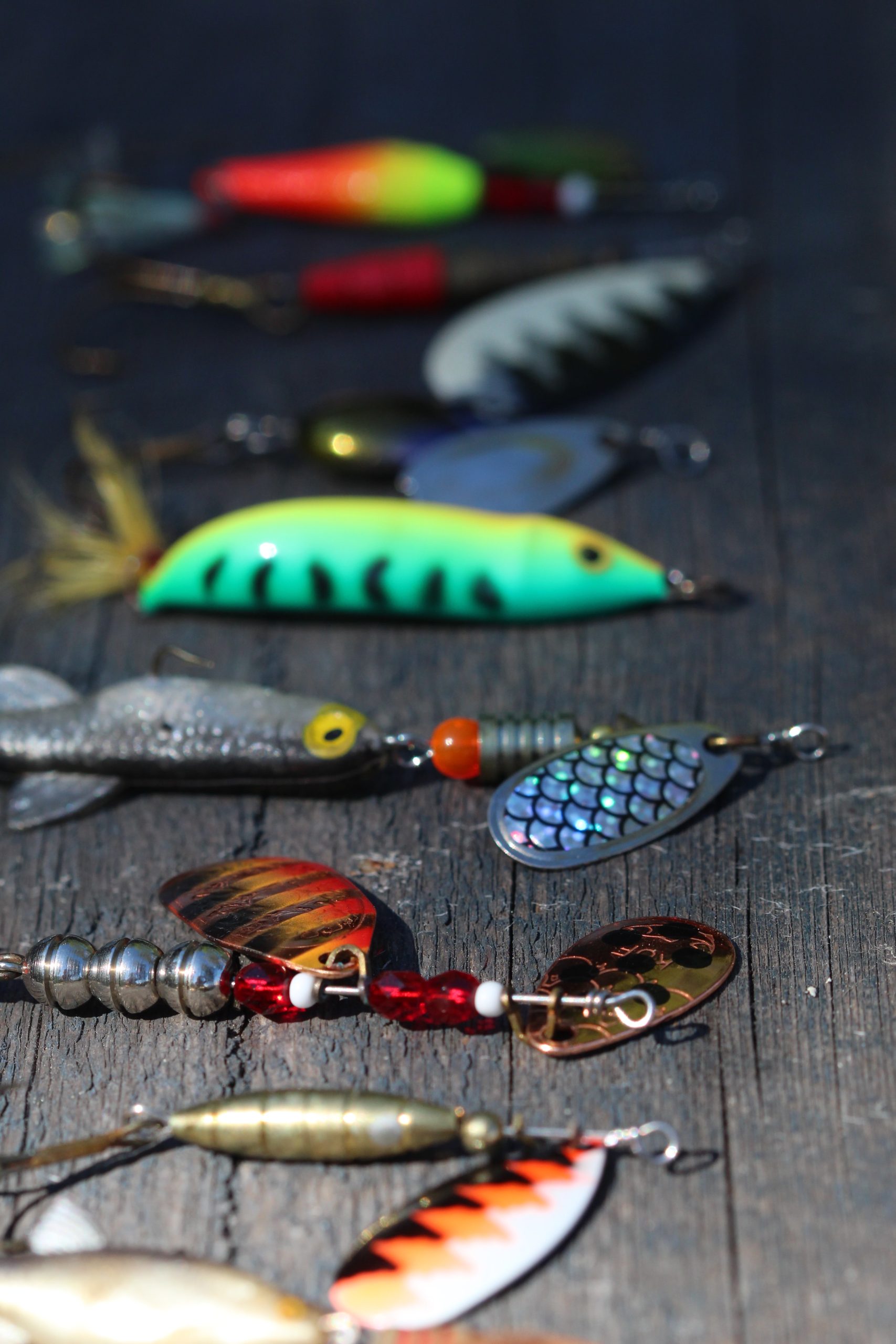Last Updated on October 10, 2022 by admin_hunter
What is about homemade fishing lures? Making fishing lures is a talent that few people know how to do.
Why would you want to go through all the trouble of creating DIY fishing lures when you can go to your local pro shop and get everything you need?
The popularity of making fishing lures has increased due to several reasons. Second, it’s amusing to experiment with everything and see if you can assemble something the bass will want to bite on.
If you’re trying to save money on fishing this season while having a good time, check out some of these great homemade fish bait ideas.
The first take in producing fishing lures at home is to determine what sort of bait you wish to create. You have a certain type in mind when you go to the shop to acquire a lure. It would be best to consider the presentation and how it looks.
Do you want to make a topwater, a bottom feeder, or a mid-water lure? In this part, I’ll explain the many sorts of Do It Yourself fishing lures and show you how to transform your concepts into reality.
Plastic Fishing Lures
Let’s start with the most basic and unadventurous baits: plastic or rubber worms. These lures imitate the movement of baitfish or earthworms in the water. Names like Berkley Gulp or Zoom baits are familiar to you.
To make a plastic lure, you’ll either need to buy a package or build your own. Essentially, all you have to do is make a mould of the lure you want and acquire the supplies needed to fill it.
I recommend investing in a mold for soft plastics. You can purchase molds for everything from worms to craws and even various animals. If you opt for a kit, it will generally include injectors, glitter, color, and instructions on putting it together.
If you aren’t the most “artistic” person in your group, I recommend this route. Remember that the chemicals used to create the plastic lure will produce fumes, so you’ll need a safe location with plenty of ventilation.
The liquid included with most kits is usually soft plastic. In a separate mixing container, you’ll mix the two components. Then you can either inject or pour them into the mold and heat it. Because the interior fluid is less conductive, it may get hotter than the molds and cause them to become hardened without harm.
Once you’ve completed that step, you’ll remove the mold, and inside you’ll discover the soft plastic lure with which you wanted.
This approach may take some effort, but you can make many lures for the price of one at your local bait shop.
Wood Fishing Lures
Mr. Wentworth is a seasoned fisherman and knows a thing or two about wooden fishing lures and how to catch enormous quantities of fish with them. Wentworth, going by the name “Big Fish Larry,” is the owner and driving idea behind BigFish Bait Company, a maker of traditional wooden lures. Alaskan yellow cedar is used to make a lot of wooden plugs since it is buoyant and water-resistant. The grain of the wood is then highlighted or painted, and it’s sealed on their plugs, Wentworth and Smith airbrush natural designs and hues.
Many individuals propose using poplar or balsa plywood because it is a nice balance between being too hard and soft.
You’ll also need a fast-drying epoxy to attach features like the eyes to the body. When you begin utilizing it, the sealer will cover the wood to stop it from breaking down and soaking up water.
Last but not least, you’ll need several different paint hues. If you’re on a budget, I will go with spray paint. But if you already have airbrush equipment, you may use it.
It would be best if you realized that when you’re building a lure out of wood, you’re necessarily limited to the types of lures you can create. You can construct a crankbait, a wooden minnow, or a jig out of anything you like.
Fishing Lures for Bass
When creating the greatest lures for bass, remember everything you know and apply it to the creation and manufacturing of your lures. You don’t have to go to a great deal of effort to attempt and develop a design that has never succeeded before since you might end up wasting your time and producing an ineffective lure.
Take ideas already out there and do your best to make something comparable. The easiest approach is to buy a mold that may be used to create soft plastic lures. This technique is easy, many people use it, and the design process does not involve a lot of expertise.
If you’re committed to going above and beyond, modify the wooden lure instructions as suggested above. Remember that most of the wooden lures you construct will float, so if you want to try something new, search around and find the best type of wood.
Advantages of Making Your Fishing Lure
As you can see from this essay thus far, creating your homemade fishing lures is an excellent alternative to spending a lot of money and risking losing them each time you go out. Everything becomes more expensive, and if you know how to fish, you don’t need to use some of the best lures.
It’s important to remember that self-reliance is not a requirement of the homesteading lifestyle. However, it can help you remain motivated when struggle and stress are high in your life. It might have taken you 10 cents or less to create a simple rubber worm in your basement that kept you going for weeks.
Here are some of the benefits of creating lures at home yourself.
Cost-Effective
Creating your homemade fishing lures is quite cost-effective, as I’ve stated. You’ve probably had a similar problem to mine: you have difficulty getting hung up and having to cut your line because you can’t retrieve it. This is a vexing situation, but it’s something that every angler encounters. Make your lures at home to save money.
Enjoyable
Building lures is a lot of fun since you have complete control over how they’re designed. You can also create your color by mixing different glitter.
If you want to construct a wooden lure, you have complete control over the design and may even try something new.
Cons of DIY Fishing Lures
There are several drawbacks to homemade fishing lures, much like anything else. There’s a learning curve for everything, of course, but it’s typically more gradual than the one you’ll experience in biking. For example, there is a learning curve with any new pastime or hobby.
Most individuals do not go on their first fishing excursion and immediately know what they’re doing—they’ve learned through experience; the same may be said for making your fishing lures.

